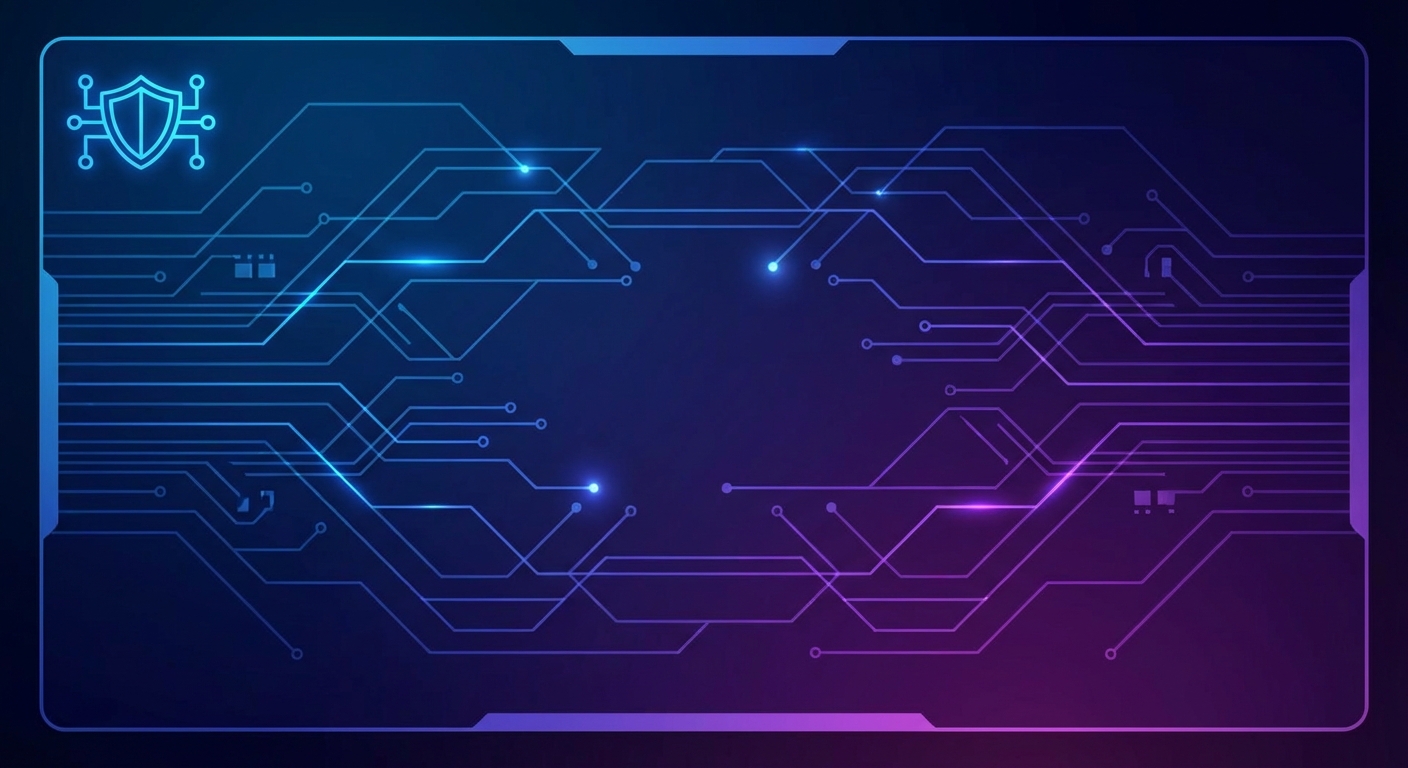Major Players in the AI Agent Landscape
TL;DR
Understanding the AI Agent Revolution
Okay, so, AI agents... it's like giving your software a brain, right? But not just any brain, a smart brain that can actually learn and do things on its own.
- AI agents are intelligent systems that see their environment and then do things to get to where they want to be. Think of it as a robot that can think and act, not just follow a script.
- They're not like regular programs that just run the same code over and over. AI agents can learn, change what they do based on what they learn, and even come up with new ideas.
- Basically, AI agents are here to make stuff easier. They can automate boring tasks, help us make better choices, and just generally make things work better across all kinds of businesses. The primary drivers for this revolution are efficiency gains, enhanced decision-making, and the potential for entirely new business models.
Like, imagine a retail AI agent that learns what customers buy and then suggest new products, or a healthcare agent that can help doctors diagnose patients faster. It's pretty wild what they can do.
And according to GlobalGPT, AI is accelerating faster than anyone expected. From infrastructure to daily life, that's good news.
Next up, we'll dive into how these agents are different from your average software.
AI Agents vs. Traditional Software: What's the Big Deal?
So, you might be wondering, "What's the fuss about AI agents? Isn't that just, like, fancy software?" Well, kinda, but there's a big difference. Traditional software is like a really good recipe follower. You give it exact instructions, and it executes them perfectly, every time. It's predictable, reliable, and great for tasks that don't change much.
AI agents, on the other hand, are more like a skilled apprentice. They have a goal, sure, but they can figure out how to get there. They can observe their surroundings (your data, the internet, etc.), learn from their experiences, and adapt their approach. If something unexpected happens, a traditional program might just crash, but an AI agent can try to figure out a new way forward. They can also come up with creative solutions that you might not have even thought of. It's this ability to learn, adapt, and act autonomously that sets them apart.
The Titans: Major AI Agent Platforms
When it comes to AI agent platforms, you've got your titans – think Amazon, OpenAI, Google, and Microsoft. They're not just dipping their toes in; they're cannonballing into the deep end. Each of them is trying to solve different pieces of the puzzle, and it's fascinating to watch 'em duke it out.
Amazon's Bedrock AgentCore, launched back in 2025, is all about secure deployment at scale. They're talking about handling everything from identity to code interpretation. Basically, it's like giving your AI agents a super-secure playground to run around in.
OpenAI's ChatGPT Agent Mode, meanwhile, wants to give Pro and Plus users a virtual sandbox computer. It's like saying, "Here, AI, go wild – but don't break anything too important." User confirmation prompts and real-time monitoring is a big part of that.
Google Cloud's Agentspace is trying to be the Switzerland of AI agents. They want to orchestrate across enterprise systems with a no-code Agent Designer. This means it's designed to be neutral and integrate with a wide variety of other systems without favoring any particular one, allowing your agents to plan, research, and create content without playing favorites.
Microsoft's Agentic AI Portfolio is leveraging GitHub Copilot and Azure AI Foundry. At Microsoft Build 2025, Github Copilot unveiled agent mode, becoming a task executing coding partner. Azure AI Foundry gives access to 1,900+ AI models and supports multi-agent orchestration.
Honestly, it's all about solving some pretty gnarly problems. Cost, complexity, data privacy – these are the headaches that these platforms are trying to squash. Amazon, for example, aims to tackle these through AgentCore.
The AI agent market reached $5.4 billion in 2024 and is projected to grow at 45.8% annually through 2030, according to CloudDon.
That's some serious growth, which means these platforms are gonna be battling it out for a piece of that pie.
So, what does this all mean for you? Well, if you're thinking about diving into AI agents, now's the time to start paying attention. As we move on, we'll be looking at some of the other players shaking things up in this space.
Enterprise Software Giants Evolving AI Agent Capabilities
Enterprise software giants are jumping into the AI agent game, and it's not just a small splash – think full-on cannonball. They're not about to be left behind in this AI revolution, that's for sure.
Salesforce Agentforce Evolution is bringing real-time monitoring to the table with its Agentforce Command Center. It's like mission control for your AI agents, tracking everything from latency to error rates. Plus, it speaks six languages and is live in multiple countries, so it's ready for global scale.
ServiceNow’s AI Platform, unveiled at Knowledge 2025, is designed for enterprise-scale agentic AI. The platform includes thousands of pre-built agents for IT, HR, and customer service workflows, and supports partner-built agents, making it a pretty comprehensive package.
UiPath’s Agentic Automation Platform, launched in April 2025, unifies AI agents, robotic process automation (RPA), and human participants. I mean this is a pretty well-rounded platform; and it features Agent Builder, Maestro for workflow orchestration, and a Healing Agent.
IBM Watsonx Orchestrate provides pre-built agents for HR, procurement, sales, and customer care. It also has a Agent Connect framework, which enables third-party agents to integrate deeply across enterprise systems.
These companies are leveraging their existing enterprise reach to get AI agents into the hands of businesses everywhere.
Specialized Platforms Making Waves
Beyond the big players, there are specialized platforms that are really carving out their own niches, offering focused solutions for specific needs.
- AuthFyre is one such platform, focusing on the critical area of securing AI agents. They provide resources and tools for managing AI agent lifecycles, integrating with identity systems like SCIM and SAML, and ensuring robust identity governance and compliance.
Now, let's talk about the open-source scene.
Open Source Innovations Shaping the Future
LangChain and CrewAI are the darlings of the open-source world, and for good reason, but choosing between them can be tricky!
LangChain is still number one, especially if you're building agents that can chat and grab info. It's like Lego bricks for AI, letting you mix and match different models and data sources. It's particularly well-suited for applications like chatbots, content generation, and data analysis where conversational interaction and information retrieval are key.
CrewAI is the mature, smart choice for multi-agent setups; think of it as a project manager for AI, letting agents collaborate on tasks. It's model-agnostic, so you aren't stuck with just one option. This makes it ideal for complex projects requiring multiple specialized agents to work together, such as automated research, complex problem-solving, or large-scale simulation.
AuthFyre are stepping up to secure these platforms. They have guides and resources on managing AI agent lifecycles, SCIM and SAML integration, identity governance, and compliance.
The Identity Management and Security Imperative
Okay, so you're building these fancy AI agents... but how do you keep them from going rogue? Turns out, it's all about identity management and security, and it's not exactly optional.
- Unauthorized access is a biggie! Imagine an AI agent in healthcare accidentally leaking patient data because it wasn't properly secured. Yikes!
- Data breaches can be catastrophic. Think about a financial AI agent that gets hacked and exposes customer banking info. Not good, right?
- Compliance violations are a headache nobody wants. An AI agent in retail, for example, might violate GDPR rules if it's not handling customer data correctly.
Making sure your AI agents play by the rules is a must. Next, we'll see how AuthFyre can help with all of this.
AuthFyre: Securing Your AI Agent Ecosystem
AuthFyre steps in to address these critical security and identity management challenges. They offer a comprehensive suite of tools and guidance designed to protect your AI agents throughout their lifecycle. This includes:
- Lifecycle Management: Tools to manage the creation, deployment, and retirement of AI agents, ensuring security at every stage.
- Identity and Access Management (IAM): Robust solutions for SCIM and SAML integration, allowing you to control who and what can access your AI agents and the data they handle.
- Identity Governance: Features to ensure that access controls are consistently applied and audited, maintaining accountability and reducing risk.
- Compliance: Assistance in meeting regulatory requirements, so your AI agents operate within legal and ethical boundaries.
By implementing AuthFyre's solutions, businesses can build trust in their AI deployments and mitigate the risks associated with unauthorized access, data breaches, and compliance failures.
Recommendations for Businesses
Okay, so you've been reading about all these AI agents and platforms, right? But what do you actually do with all this info? Here's the lowdown on what businesses should be thinking about.
Integration and Infrastructure
First off, don't even think about ripping and replacing your whole system. AI agents need to play nice with what you already got.
- Legacy systems are a thing, ain't they? Make sure any AI stuff you bring in can actually talk to your old databases and software.
- Open standards matter. Look for platforms that don't lock you in, you know? Something that uses open protocols can save you headaches down the road.
- Consider pre-built connectors. The more out-of-the-box integrations, the less custom coding you'll have to do.
Implementation Strategy
Don't try to boil the ocean from day one, people; that's just asking for trouble.
- Pick a pain point. Find some boring, repetitive task that's begging for automation.
- Prove the value. Run a pilot program, measure the results, and then scale it up if it works.
- Keep a human in the loop. Don't hand over the keys just yet. Keep a human in the loop, especially in the beginning, so things don't go sideways. This human oversight is crucial for catching errors, providing context that the AI might miss, and ensuring the AI's actions align with business objectives. Humans can act as validators, interveners, and trainers, guiding the AI's development and preventing unintended consequences.
Cost Considerations
And finally, don't just look at the monthly subscription fee.
- Factor in integration costs. How much will it cost to get everything hooked up?
- Consider maintenance too. Who's gonna keep things running smoothly, and how much will that cost?
- Think about compliance. Security and governance ain't free, especially with AI agents doing sensitive stuff.
So, yeah, AI agents are cool and all, but it's about more than just the tech, right? It's about making a smart move for your business, not just chasing the latest trend.





